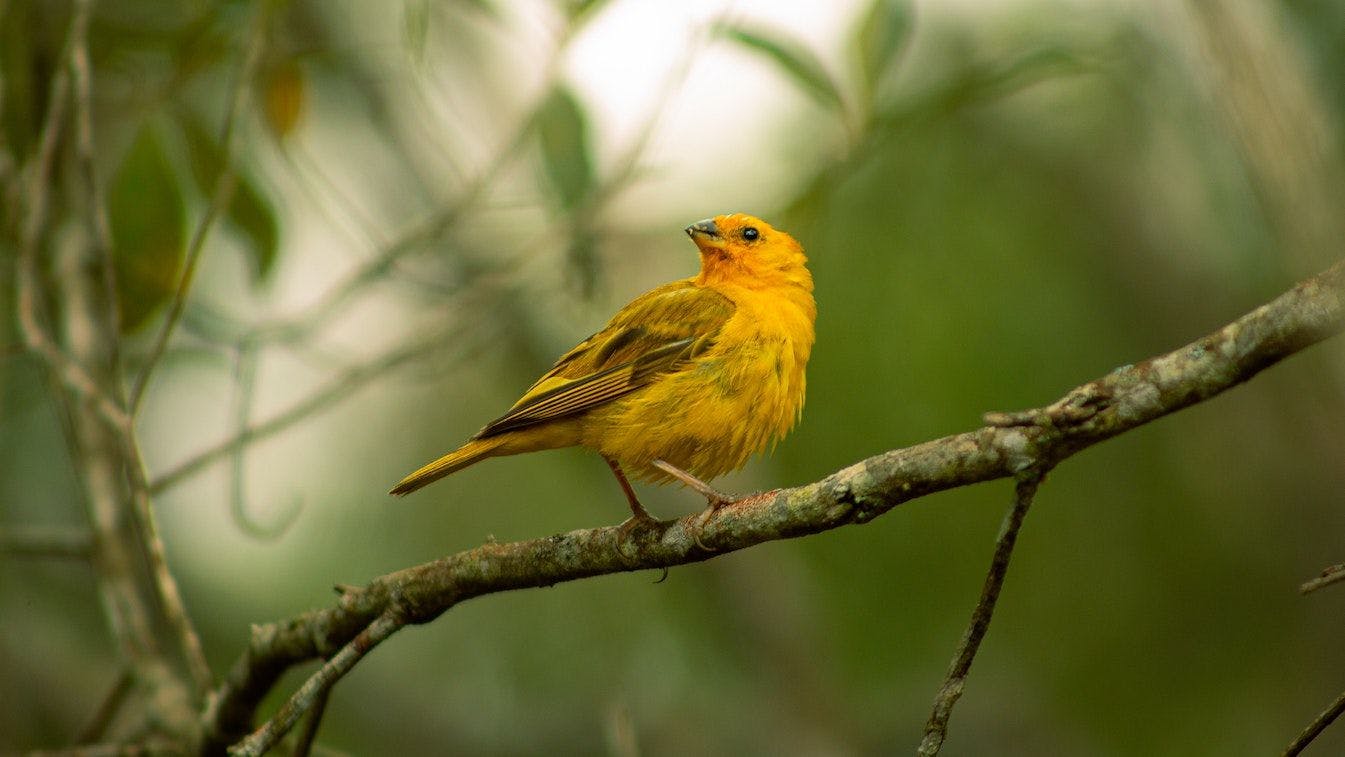How to use birdsong to reduce stress and boost mood
updated on Aug 20, 2023

From listening to evocative coos, to realigning our days with nature’s rhythms, birdsong may have a deeper impact on our happiness than we first thought
New research from the University of Surrey has confirmed that listening to birdsong can reduce anxiety, boost feelings of wellbeing, and even lift depression. Most of us soundtrack our days with playlists, podcasts, or ambient urban noise. But could happiness be found by tuning-in to nature’s free concert?
From the warbling of a nightingale to the majesty of the dawn chorus, melodic birdsong really does make our hearts sing – but why? It may be down to evolution.
“Birdsong might indicate a natural environment without predators,” explains Dr Eleanor Ratcliffe, lecturer in environmental psychology at the University of Surrey, who led a study into the impact of birdsong on mental wellbeing. “Since nature is the environment in which humans evolved, we are inclined to relax and feel better in pleasant, non-threatening natural settings that offer us resources that help our survival.”
So, how can we maximise the wellbeing benefits of birdsong day-to-day?
Go where the birds are
A recent study led by King’s College London found everyday encounters with birds in natural spaces boosted mood and helped alleviate depression.
Jo Humphreys, nature and wellbeing officer for Lancashire Wildlife Trust, highlights how urban gardens, nature reserves, and parks with a variety of habitats, are perfect locations to find birds. “In a well-visited park, the odds are the birds are quite used to people wandering past, so will likely be more relaxed if you stop to take a look. Birds, especially the smaller ones, like to have plenty of cover, so areas of scrub and woodland are ideal.”
But set your alarm for maximum exposure. “There’s an increase in song in the evening, but the dawn chorus is the real treat. It typically starts an hour before sunrise, peaking half an hour before, and getting quieter half an hour afterwards,” she adds.

Recorded birdsong is also effective
Researchers in California discovered that listening to just seven to 10 minutes of birdsong, even if recorded, boosted wellbeing.
This is great news for those unable to access natural spaces so readily. Simply listening to an app on your commute, or while sitting at your desk, can help you de-stress during the working day. Download the RSPB’s Birdsong FM app, or stream online radio station Birdsong.fm, for a quick blast of birds whenever and wherever you are.
Use birdsong in meditation
A study commissioned by the National Trust found that listening to birdsong, along with other woodland sounds such as a trickling stream and crunching leaves, was 30% more effective at increasing feelings of relaxation than a voiced meditation app.
Swap your go-to meditation aid for a birdsong app, and let the sounds help you visualise being in a beautiful woodland or sunny garden surrounded by birdlife. Practise for a week, and note any difference in your mood.
Find your favourite birds
Dr Ratcliffe’s study found that our response to a particular bird sound may depend on personal associations. One participant found clucking chickens to be particularly comforting because it reminded her of being in the garden feeding her own hens. Another associated the sound of wood pigeons with the summers of her childhood, prompting feelings of joy.
But not all birds are perceived positively. The study found that corvids (birds such as crows and gulls) can be stressful, irritating, and even scary for some.
Experiment with different avian sounds to see if they evoke specific memories – perhaps a skylark sings on your favourite walking route, or maybe seagulls aren’t irritating at all because they remind you of happy childhood trips to the beach.

Wake up with the dawn chorus, fall asleep to the dusk chorus
Tap into the ancient prompts for waking and sleeping and help reset your natural circadian rhythms. Some birdsong apps allow you to schedule the dawn chorus as an alarm so you wake up as nature intended.
It can also work at the end of the day. The lesser known ‘dusk chorus’, though not as intense as its dawn equivalent, has a relaxing effect that could help you drift off naturally. On the Atmosphere app, you can create your own birdsong mix (including suitably nocturnal owl sounds) and set a timer so it switches off once you’ve nodded off. If your bedroom is a phone-free zone, use the handheld Sensate device for 20 minutes of birdsong and calming vibrations before bedtime.
Jo Humphreys identifies the UK’s most common songbirds:
Blackbird: An early riser but heard long into the evening, its song is flutey and mellow, with short non-repeated phrases.
Robin: A fluid, silvery song described as melancholic in the winter, but more powerful and upbeat through spring and summer.
Wood pigeon: A repetitive coo to the rhythm of "my tooooe hurts, Bet-ty".
Wren: Remarkably loud for one of our smallest birds, its song is a fast-paced assortment of notes with a short machine gun-like trill towards the end.

